The United States answer to Dusty Springfield Makes a Rare Live Appearance at the Stomp
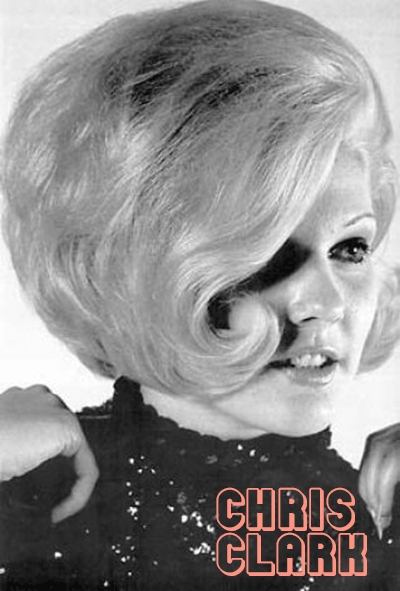
No one else even remotely like Chris Clark graced Motown’s abundant 1960s talent roster. A statuesque six-foot-tall platinum blonde from northern California with ravishing good looks who possessed a stunning voice tailor-made for belting real deal soul, Clark’s closest competition was most likely Dusty Springfield—and she happened to be doing business on the other side of the Atlantic Ocean.
Only problem was, Motown never did quite figure out how to effectively market Clark, so full was the aggregate Hitsville, U.S.A. plate. The devastating Holland-Dozier-Holland-penned “Love’s Gone Bad” was Chris’ lone chart entry in late 1966, managing a #41 R&B placement. One listen to her classic ’67 album Soul Sounds should be enough to convince anyone that Chris Clark’s commercial and artistic possibilities were infinite. Her rare appearance at this year’s Stomp is sure to renew the eternal question: how did this woman not achieve mainstream stardom?
Early Days
Born February 1, 1946 in Santa Cruz, California, Christine Elizabeth Clark commenced her musical career early in life. “I think I sang from the time I was knee-high,” she says. “When I was in junior high school, I was working with eighth grade bands, and when I was in seventh grade, I was working with high school bands. It kind of escalated from there. But I was singing what the rest of the little white girls sang. And the problem was, when I tried to do folk, I just had a minor resonance. And I never really listened to black music. It was really odd. It was just something, I guess in my makeup. And by the time I was 15, I was working nightclubs.
“I used to go on these tours. The first one I did was with Jan & Dean and Dick & Dee Dee, and they would have two big names and three no-names. And the next year I did it, I was with the Olympics and the Coasters. In fact, the Olympics, we played a VFW Hall in Marin County, and the way they set it up, they had a blocked piece of stage they set three-quarters of the way back. And I was, I guess, maybe 14. And they had Burns boys, the security people without the guns, around the edges.
“I had just gotten done with my act. They came on, and a fight broke right in front of the bandstand. And someone grabbed a bottle and broke it over someone else’s head. So one of them reached around and snatched me back up on the stage, and this whole fight was there. And none of the security people could get to it. So someone would suddenly get thrown on the stage, and they would take them by the arms and the seat and swing ‘em back and toss ‘em back off the stage. It was great, it was really great!
“Another night, I got a call from someone in Richmond/Oakland who had heard a tape of mine, and hired me for four weekends, not knowing that I was white. So I went to the Richmond Auction Hall. I was on the bill with Bobby Freeman and someone named Little E. So I got in my little Volkswagen and I drove over there, and they said, ‘Get out of here, little white girl! You stupid girl, get out of here!’ And I said, ‘That’s my name up there!’ He said, ‘What are you talking about?’ And about that time, Little E arrived, who was about 6’5″. And he straightened it out. He said, ‘Look, I’ll take care of her.’ So he would go on, and he would end up with ‘What’d I Say,’ and he would call me up. And I never had any problems. My mother had her heart in her throat a few times.
Motown Audition
“Then I went out and I worked in L.A. for a little while, until the club found out that I was underage. And I eventually ended up with an agent, and she had offers from a couple of people that wanted to do something with me, one of which was Phil Spector. Anyway, during that time, I heard some early Motown stuff. And it’s hard to describe–I can’t really describe it. Something about it spoke to me. And so I told her before any of the other record companies, that I wanted to interview with Motown. So she arranged it, thinking that they would never take me. So she arranged an interview with Hal Davis on the West Coast. So he brought me in, and he cut three tracks, put the acetate in my hand, and sent me back to Detroit to meet with Berry Gordy. It was kind of amazing.
“He let me sit in his office for about four hours while he did other things, and sort of looked up over paper at me occasionally. And then listened to it and said, ‘Well, I don’t really want any white girls. Let me hear something live!’ And so I said, ‘Oh, okay.’ So I said, ‘Do you have a piano?’ And he said. ‘Yeah. What tune are you gonna do?’ I said, ‘One called “All I Could Do Was Cry,” the Etta James tune.’ And he said, ‘Well, do you want me to play it for you?’ And I said, ‘No, because the chords are kind of complicated.’ And I was playing with little white bands. They were doing ‘Bony Moronie,’ so when I heard ‘All I Could Do Was Cry,’ I had to teach them the chords. So I said, ‘No, I’ll play it myself.’ So I played it, and he said, ‘Huh.’
“He took me into Holland-Dozier, and said, ‘Look, this little white girl came in. Play a song for ‘em!’ And I said okay. He said, ‘Play that one you were doing. You sure you don’t want me to play it for you?’ I said, ‘No, no, no, the chords are kind of…’ He said, ‘Okay.’ So I did it. And all of them were kind of looking down my throat. It was the strangest feeling. Then he took me into Smokey’s office and did the same thing. And it was only a year later that I found out he wrote that tune!
“So we went through kind of this round, and he said, ‘Okay, let me think about it.’ You go over to the hotel. It was down the street. And he said, ‘You stay there, I’m going to think about it.’ And he went to the Aleutian Islands with the Supremes. And so every couple of days, somebody from the company would say, ‘Do you want to go to a movie?’ ‘Oh, no, no, huh-uh.’ And they sent me over some songs. Meanwhile, my manager was calling, saying, ‘You’ll never work again!’
Motown Signs
“Eventually, he came back and decided to sign me. It was so fortunate. That whole energy about that place was kind of like when the Berry Gordy Express goes by, you jump on and ask ‘Where are we going?’ Later!’ I didn’t even know how honored I was. I kept learning more and more as it went on. He and I wrote some tunes together, and I had the luxury of probably spending the first eight or nine years working directly with him, and learned so much.”
That auspicious audition took place in 1963. “I think I’d just turned 18, because he had to have my parents sign the contracts,” says Chris, who then cooled her heels for a couple of years as a Motown receptionist until Berry had time to write and produce her debut single. In December of 1965, Motown’s V.I.P. logo issued Clark’s seductive mid-tempo charmer “Do Right Baby Do Right,” which she opens acappella before the Funk Brothers come in with a slinky, steady-surging groove. It was as soulful as anything on the Motown release slate that month. Baritone saxman Mike Terry, a fixture on the Supremes’ chart-toppers, took a brief solo; the Lewis Sisters provided backing vocals.
“(Berry) wrote it, and I sat beside him at the piano. We were kind of laying it out. He laid it out and I sang alternatives. It was exciting,” says Clark, who was no less alluring on the flip “Don’t Be Too Long,” even if she did overdub her vocal on a Gordy-helmed 1962 track originally intended for the unknown Anita Knorl. Clark was finally on her way, even if her first effort wasn’t a hit. “There was a little bit of a backlash against that, because they released it and people didn’t know I was white. I don’t think it was a major one, but it was enough of one. And it didn’t spark interest. I think it bugged people.”
“The Original Five Note Range”
To hear Clark tell it, recording her vocals wasn’t quite the same process as for some of her labelmates. “When I came to the company, I had probably the original five-note range,” she claims. “Everyone else had 105 notes. So when the producers would go to do your song, they would find your key, and then they would cut it two keys above that. And when Levi did it and Marvin did it, they reached for those notes and it sounded great. And when I reached for those notes, I sounded like a chicken somebody was trying to strangle!”
Great song though it was, “Do I Love You (Indeed I Do)” just couldn’t seem to lock down a spot on Motown’s release schedule. It was originally cut in L.A. by its writer Frank Wilson in 1965 with Hal Davis and Marc Gordon producing and listed for issue on Motown’s Soul imprint until Gordy queried Wilson backstage at the Fox Theater in Detroit as to whether he preferred performing or a behind-the-scenes role to Motown.
“It was right then and there I told him I wanted to be a writer and a producer,” said the late Wilson. “It was decided that he would not release that record on me.” All but a handful of the already pressed Wilson 45s were destroyed, making it the rarest Motown single in existence. Chris overdubbed a fresh vocal over the same fiercely pulsating backing track that was slated for an April ’66 release on V.I.P., only to have it canceled as well. Her version eventually squeaked out anyway, bootlegged from a test pressing, though it didn’t see legit release until 2001.
Love’s Gone Bad
Instead, Motown’s powers-that-be opted to press up the Holland-Dozier-Holland-penned “Love’s Gone Bad” that July on V.I.P. Its hard-driving beat brought out the very best in Clark’s pipes once again, at least until the closing coda. “Holland-Dozier cut me on that. It was the first time I’d cut with them,” she says. “They got down to the end, and they said, ‘Okay, now, this is the ending, so just break loose! I mean, it’s a vamp ending, and just tear it up!’
“Well, Connie Francis didn’t do vamping endings, so I didn’t know how to do one. And the only thing I could remember was Wilson Pickett, ‘In The Midnight Hour.’ So they said, ‘Okay now, hit it!’ I was like, ‘In the midnight hour! Love’s gone bad in the midnight hour!’ And I did it about four times. So all of a sudden, the sound cut out, and Brian said, ‘You’re kidding me, right?’ ‘No!’ And so it ended, ‘Love’s gone bad,’ bomp! That was why.” It would prove Clark’s only chart record. The Underdogs, one of Motown’s toughest garage rock groups (yes, the label did host several quality rockers prior to Rare Earth), waxed a snarling version that came out on V.I.P. early the next year.
Put Yourself in My Place
On the flip, Chris wrapped her pipes around another captivating H-D-H gem, “Put Yourself In My Place,” introduced a few months earlier on V.I.P. by the Elgins. “Golly, you know what? I was intimidated to do that, because I’d heard the Elgins,” says Chris, who remembers H-D-H fondly. “They were great. It’s funny, because I only knew them through Berry. I knew who they were, and I knew they were doing the Supremes. I would probably be paralyzed to go in and cut with them now. I was only semi-paralyzed because as you looked around, you figured, ‘Well, shoot, you know, they’re doing hits on everybody, so this is gonna be the one that throws me out like everybody I’m in here with!’”
http://www.youtube.com/watch?v=hdWVtnU6LRo
Writing with Berry
Berry was so busy with his daily duties as Hitsville’s big boss man that he hardly had time to write or produce anymore. But he sat down with Chris to brainstorm her next V.I.P. offering, the yearning “I Want To Go Back There Again,” out in February of 1967. Gordy later cited the song as a personal favorite in his autobiography. “We had kind of been writing together,” says Chris. “Kind of the way to write was I would do 147 verses of the lyrics, and he would pick the three sets that were good. And we would sort of collaborate on the melody. He would play, and then we would experiment with different melodies. I would give my 170 verses of lyrics, and he would lock in the ones that were the best.
“We’re both workaholic fanatics. Because it was mentor/student, we worked on things, but there would be no way that I would be considered a co-writer because I didn’t have the chops that he did. But I got to be involved with writing it, sort of with him, but not as an equal,” she continues. “He tried to cut that song. He cut that song on everybody and couldn’t get a hit. He would probably marry whoever got a hit on that to his dying day.”
No less a star than Marvin Gaye supplied Chris with the flip side, a churning “I Love You.” Not only did Marvin co-write it, the song marked his first production credit at Hitsville. “I’d gotten to know him a little bit, and he said, ‘Look, I’ve got this tune. I want to cut it on you!’ I said, ‘Yahoo!’” says Clark. “And it turned out that in cutting it, I kind of sounded like him. I didn’t realize that he sort of wrote it like he sings. It was great.”
Debut LP: Soul Sounds
Gordy moved Chris over to the parent Motown logo for her debut album Soul Sounds, released in August of 1967. The set showcased Clark on a beguiling lineup of well-chosen songs by the label’s top writers. Berry contributed “Day By Day Or Never” and “If You Should Walk Away,” the latter penned in cahoots with Frank Wilson. H-D-H were responsible for “Until You Love Someone,” and Wilson and Marc Gordon came up with the delicious “Sweeter As The Days Go By.” There was also a cover of the Beatles’ “Got To Get You Into My Life” and a revival of the Miracles’ “From Head To Toe” produced by Smokey Robinson and fellow Miracle Pete Moore that would be chosen as Chris’ first 45 on Motown proper that September. The perky anthem had debuted on the Miracles’ ‘65 Tamla album Going To A Go-Go.
“(Berry) called up and said, ‘You’re gonna do this with Smokey!’ And in fact, I didn’t know that he had cut it. So there were a few other tunes like that that I didn’t know had already been cut by somebody. It was funny, because I kind of originally never liked that,” says Clark. “It was only after it started to hit in the U.K. and I did it live that I really liked it, and I appreciated the dynamics behind it.”
The Beginning Of The End
The exquisitely bluesy “The Beginning Of The End” would serve as its B-side and do identical duty on Clark’s final Motown outing in early ’68, a delicious upbeat reprise of the H-D-H perennial “Whisper You Love Me Boy” (Mary Wells and the Supremes had previously waxed the number). A staggering amount of great material by Clark exiled to the Hitsville vaults was finally exhumed for the 2005 British two-CD set The Motown Collection; Chris tried her hand at several more H-D-H copyrights, Gordy’s “Try It Baby,” Smokey’s “Mighty Good Lovin’,” and a 1966 rendition of “Yester-Me, Yester-You, Yesterday” that predates Stevie Wonder’s hit by three years. A load of unknown titles only adds to the set’s fascination for Motown archivists.
http://www.youtube.com/watch?v=bZNj3B_3iJY
http://www.youtube.com/watch?v=CoBKPH6-XoE
“That place went 24 hours a day,” says Chris of Hitsville. “Later on, when I got into sessions, people would shoot through, or they would come in and they’d grab you and say, ‘Look, put a couple of lyrics here!’ Or, ‘Help me fill in this part there!’ There was just a synergy that probably there’s not a person that was in it that doesn’t miss it desperately. It was unlike anything else.” Throughout her stint as a Motown recording artist, Gordy retained faith in her.
They really tried everything to break me
“He did, and I think part of it after awhile was just trying to prove that there was a reason that he jumped the gun and brought me into Motown,” says Clark. “It kind of bugged me when that anthology came out, people said, ‘Wait a minute, this could have been a hit! That could have been a hit! Why didn’t they release it?’ And the thing was that we had so many hits at the point that I came to Motown, every single month, every single week, we were like four of the Top Ten, five of the Top Ten. So they had to do followups on the Temptations and Smokey and the Supremes and the Miracles and Stevie. And the fact that they did so much recording on me as they did says so much. They really tried everything to break me.”
Deke Richards, Weed Reecords and the Runaway Elephant
There was one recording project left for Clark at Motown, the most unusual one of all. Young producer Deke Richards was just commencing his incredible run as one-quarter of the production team behind the Jackson 5. Gordy was part of it too, and he asked Richards to produce something new on Clark. He came up with “Can I See You In The Morning,” which got Gordy excited enough to offer Deke a chance to helm an entire LP by Clark. Deke came up with a radical concept for the project: a new subsidiary, Weed Records (hey, it was the late ‘60s), and a new sobriquet for the gorgeous chanteuse (she’d simply be billed as CC). Berry was in a hurry for the album to be completed, so Deke recruited arranger David Van de Pitte to help.
“I’m not a fast and speedy arranger. I’m slow as a turtle. So Dave enabled me to, without having to worry about writing charts, I could give him parts and he would write them for me,” said the late Richards. “He was easy and great to work with. So he worked with me on that whole thing with CC, with Chris Clark. The CC Rides Again album, I pulled him in for that whole album.”
Apart from the Richards compositions “Can I See You In the Morning” and “How About You,” CC Rides Again consisted largely of pop and rock covers that deposited Chris in another realm entirely: “Spinning Wheel,” “With A Little Help From My Friends,” “Get Back,” “In The Ghetto,” “One,” “Good Morning Starshine.” The photo shoot for the album cover was just as much of a departure; suffering from a 102 degree fever, Chris sat astride a full-grown elephant, which at one point lumbered away with her unable to disembark! The counterculture concept didn’t work, and Weed Records went up in smoke after Clark’s 1969 album (there were no 45s).
2006 Comeback
Chris remained close to Gordy after her recording career ceased. She segued into Motown’s front office, excelling at photography, graphic design, and screenwriting (she received an Oscar nomination for co-writing the screenplay for 1972’s Lady Sings the Blues). Clark stayed with Motown into 1982, but didn’t sing again in public until she ventured over to England in 2006 to share a star-studded bill with fellow Motown grads the Temptations and the Four Tops at London’s prestigious Royal Albert Hall in the wake of The Motown Collection.
“Otis Williams of the Tempts called me and said, ‘Look, you want to come over? We’re doing some U.K. dates. We’ve got about 13 or 14. Why don’t you come over and do them with us and open for us?’ I said, ‘Oh, sure!’” she says. “So I sewed on the sequins, put on the fringe, my heart in my throat. I loved it!
“I had forgotten how much I like to sing.”
–Bill Dahl
Postscript 1- here is an excerpt of a review of one of Chris Clarks recent rare live appearances.
All the way through Mable’s set I had noticed that Chris Clark was at the top of the stairs hiding behind a pillar watching her set and clapping along… now was the moment I had waited over 30 years to see… Chris Clark live on stage. I was SO nervous… what if she wouldn’t be able to live up to my high expectations? She descended the stairs wearing tinted Jackie O specs looking a tall vision in white – a long blouse/skirt with a fringed shawl loosely tied low over her shoulders, a silver belt and white knee-boots and a mane of wavy white blonde hair – she looked Amazing! Back in February I explained about my introduction to this most under-valued of Motown singers when I made her my February hero of Motown.
She is so tall she often vanished behind the overhead stage speakers – but she soon came outfront and launched into Northern Soul classic “Love’s Gone Bad” and she sounded Fantastic!! Her sexy growling soulful voice has lost none of it’s power and as she swayed and sang to the band she never once stopped smiling widely. She appeared genuinely surprised at the massive ovation that song received and totally won me over with her sheer joy at being onstage. She said it was a humbling experience to be somewhere where she was so loved as “back home I can’t even sell my white ass”. She seemed full of nervous energy which was totally endearing – she was just happy to be given this opportunity to perform.
Postscript 2 – Berry Gordy on Chris Clark from an Unsung Soul Singer Resurfaces
“Seriously, she’s been one of the great lights of my life – believe it or not,” he says. “… She has always been a star. She is very creative, not just in music, writing and poetry, but art. I regret that Chris Clark is not one of the biggest stars in the world, because she deserves to be.”
He praised her singing. “She just didn’t get the material,” he says. “She worked with Holland-Dozier-Holland. She did one of the greatest songs I ever wrote. But she could never break that glass ceiling.”
The fact that she was Motown’s white singer was one obstacle to greater success, he admits. “It was a problem, but not an insurmountable problem because she had more soul than many of the black artists,” he says. “I was engrossed by her abilities and her talent.”
“She was up against Smokey. She was up against Stevie. She was up against Marvin. She was up against Diana and the Supremes, Gladys Knight and the Pips, the Marvelettes. And she held her own against those people,” says Motown founder Berry Gordy Jr.



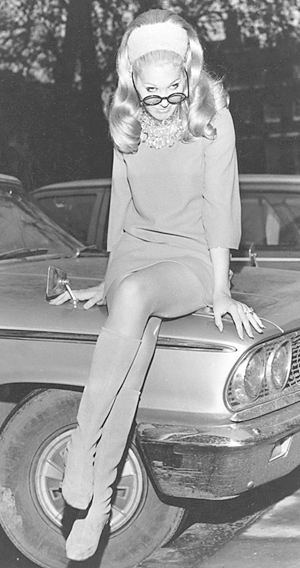

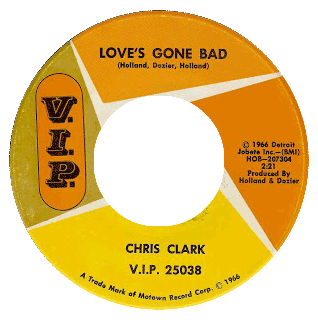
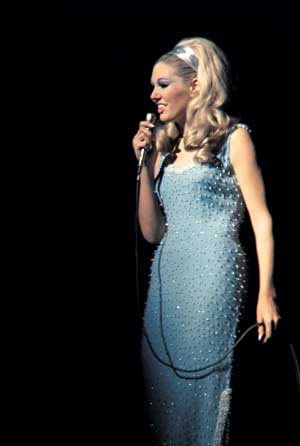
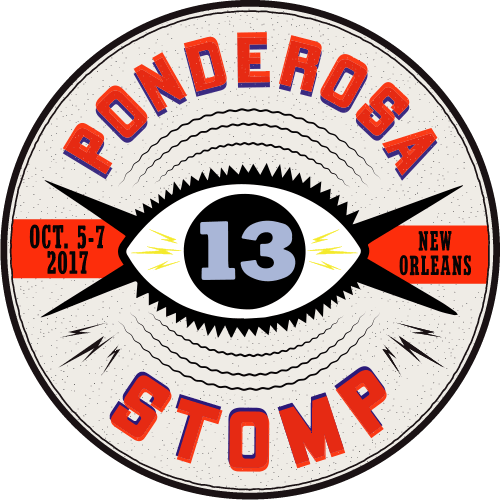
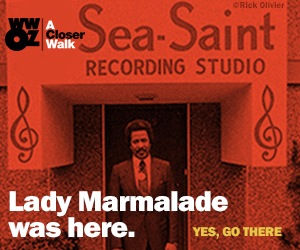
3 thoughts on “Chris Clark – Motown’s Great White Hope”